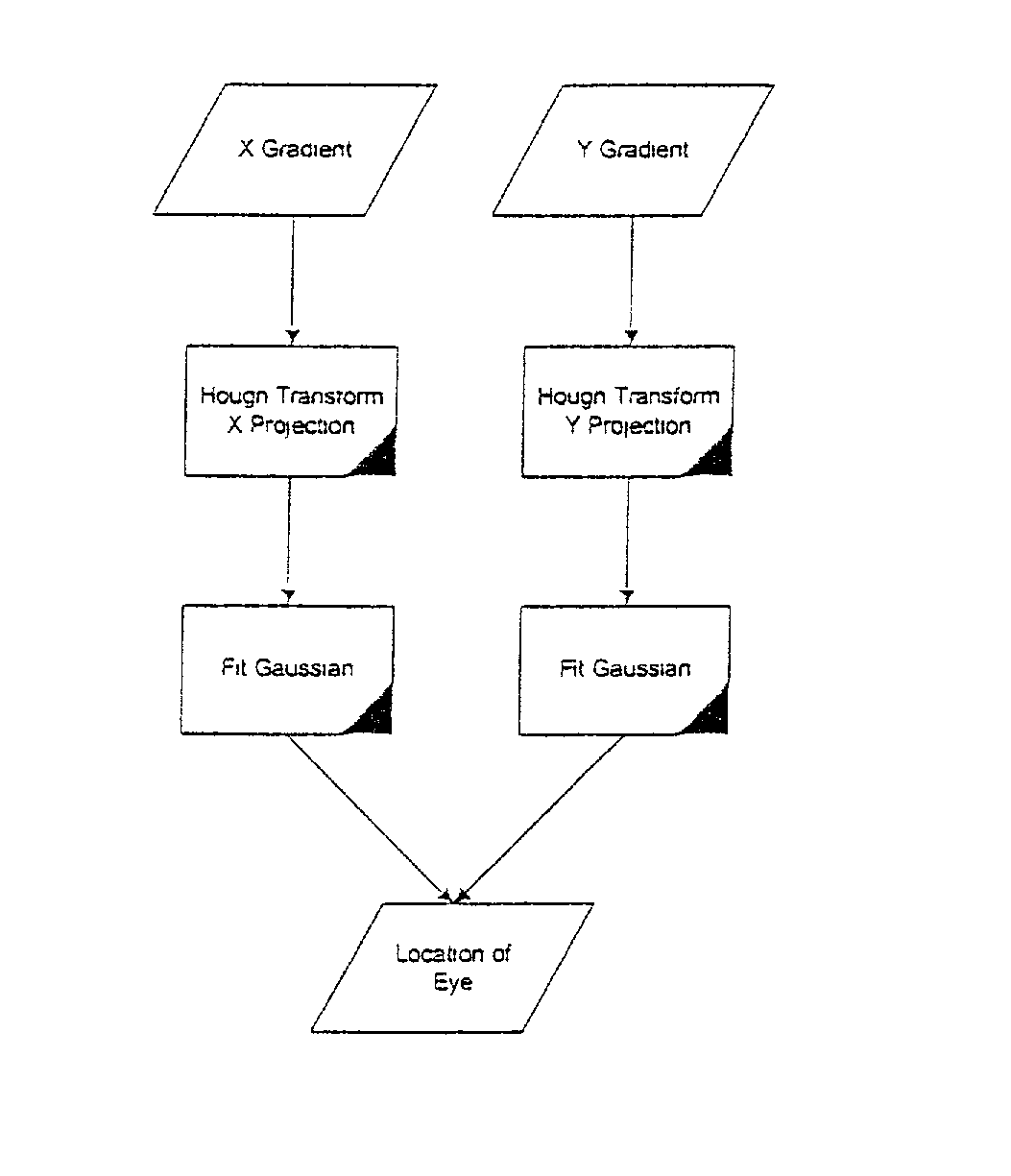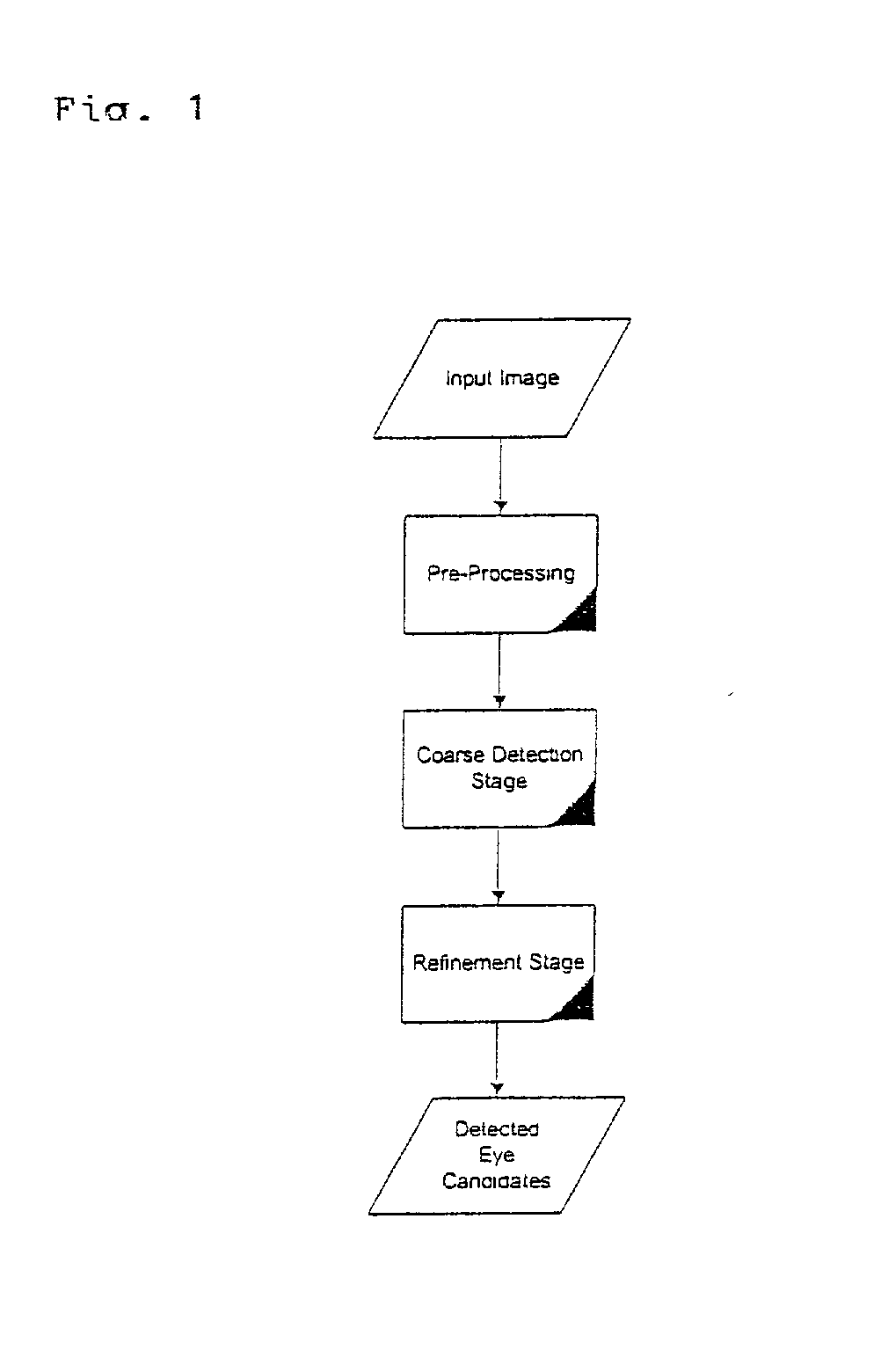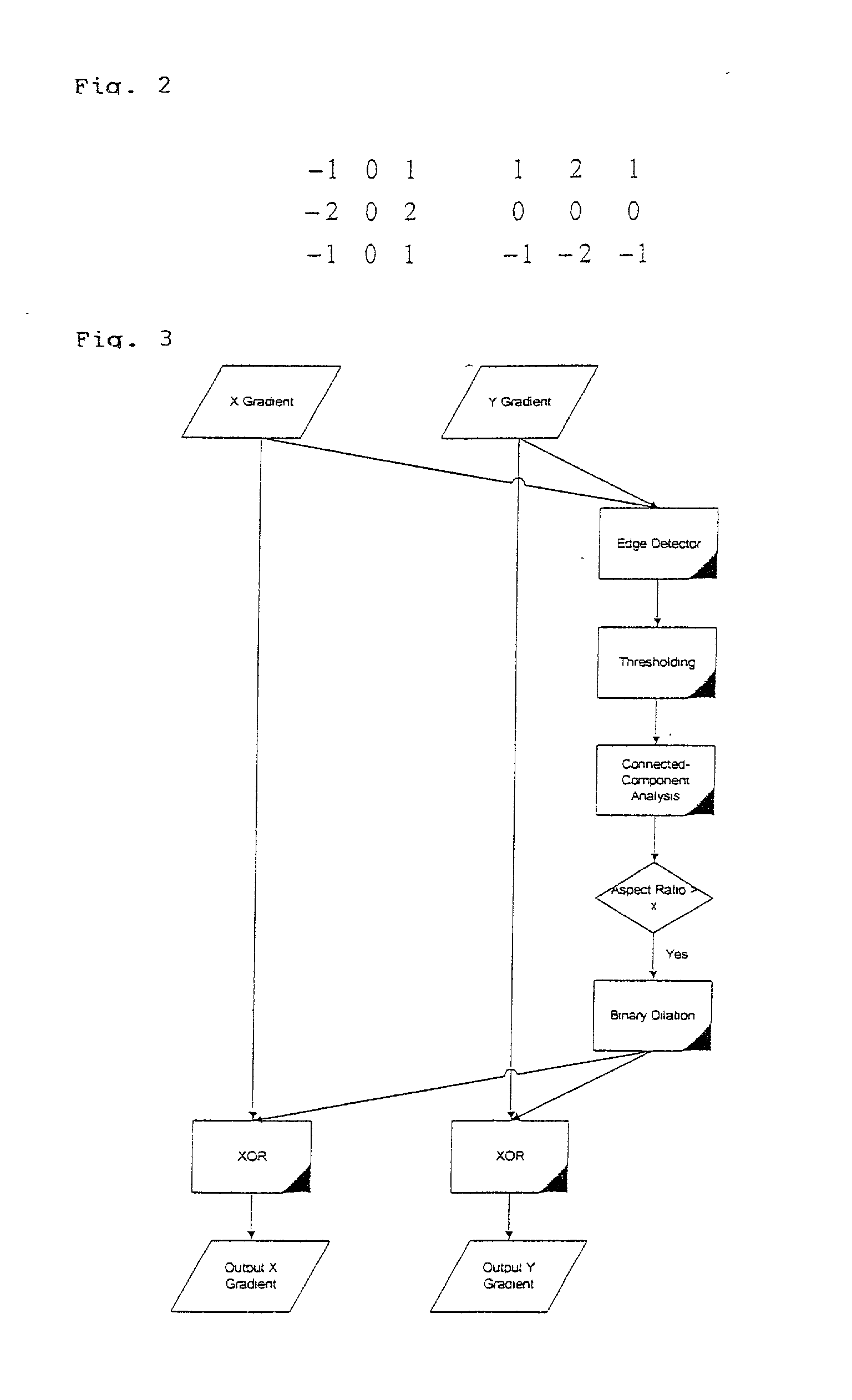Automatic image pattern detection
a technology of image pattern detection and automatic detection, applied in the field of automatic image pattern detection, can solve the problems of time-consuming and laborious, red eye defects, and difficult to find a general parameter set that works for a wide variety of images,
- Summary
- Abstract
- Description
- Claims
- Application Information
AI Technical Summary
Benefits of technology
Problems solved by technology
Method used
Image
Examples
Embodiment Construction
[0041] FIG. 1 shows a flow diagram for the automatic detection of image patterns and particularly for human eyes, the sun, a flashlight reflection or the like. The detection is carried out in two stages: a coarse stage followed by a refinement stage. During the coarse stage, the exact locations of the searched image pattern are of less interest. However, attention is rather directed to areas that are of interest and that are likely to contain the searched image patterns, e.g. eyes. During the refinement stage those regions will then be further examined and it will then be determined whether there actually is a searched image pattern, e.g. an eye and, if yes, what is its location and approximate size.
[0042] In the following, the disclosure is directed to the recognition of the location of eyes, while it is, of course, possible to proceed with other image patterns approximately the same way.
[0043] For both the coarse and the refinement detection stage, the gradient decomposed Hough tr...
PUM
 Login to View More
Login to View More Abstract
Description
Claims
Application Information
 Login to View More
Login to View More - R&D
- Intellectual Property
- Life Sciences
- Materials
- Tech Scout
- Unparalleled Data Quality
- Higher Quality Content
- 60% Fewer Hallucinations
Browse by: Latest US Patents, China's latest patents, Technical Efficacy Thesaurus, Application Domain, Technology Topic, Popular Technical Reports.
© 2025 PatSnap. All rights reserved.Legal|Privacy policy|Modern Slavery Act Transparency Statement|Sitemap|About US| Contact US: help@patsnap.com



